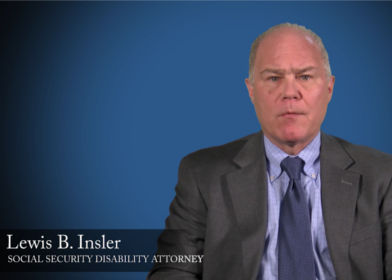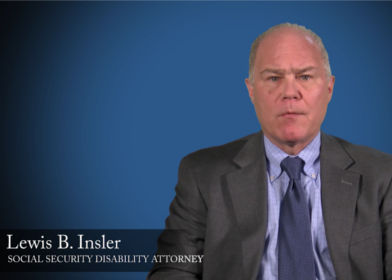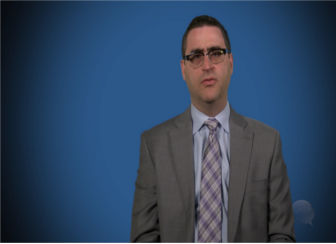Veterans Affairs - Determining Impairment Ratings | New York Disability Law
Gideon J. Miller
Veterans Affairs Issuing Impairment Protocol
My name is Gideon Miller, and I’m going to explain to you how ratings are issued by the VA, for multiple impairments including Post-Traumatic Stress Disorder. Multiple impairments are not simply added up to obtain a novel rating in a VA claim. Each decreasing impairment is seen as a percentage of what is left. For example, a 15% impairment leaves you with 85% remaining. A further 10% impairment is taken against the 85% to yield an additional 8.5% rating. And the total of 18.5% would usually be rounded to 20%.
However, the VA can also pay a benefit greater than the 100% rating amount for cases of Individual Unemployability or IU. To qualify, you must have at least one service-connected disability rated at 60%, or alternatively, two or more service-connected disabilities with at least one disability rating at 40% or more, with a combined rating of 70% or more. You must be unable to maintain substantially gainful employment as a result of your service-connected disability.
Individual Unemployability & Post-Traumatic Stress Disorder
Marginal employment such as odd jobs, is not considered substantial gainful employment for VA purposes. While Individual Unemployability can come from many combinations of impairments, it is frequently associated with claims for Post-Traumatic Stress Disorder. Due to the great deal of attention this condition has received in the past 10 to 15 years, there are now a number of presumptions in favor of a diagnosis of Post-Traumatic Stress Disorder.
For example, if you’ve served in combat, and you can prove that your PTSD is related to that combat experience, the presumption applies. But even if you think you meet one of the presumptive causes, there may still be difficulty showing the existence of the stressor to the VA satisfaction. You may be found to have a service-connected disability for Post-Traumatic Stress Disorder from a stressor that is not among the presumption. However, in that case, you will need a medical report connecting the stressor and the diagnosis called a Nexus Report. Nexus reports are needed for any condition for which a presumption does not exist in the law.
Exposure to Agent Orange
The other major condition for which there are presumptions, is for Vietnam arrow exposure of the Agent Orange. Proof of exposure to Agent Orange, and a diagnosis of certain conditions such as diabetes or leukemia, allow for a finding of service connection. However, in any of the presumptive service-connected impairments, the rating is still subject to the usual factors.
By: Gideon J. Miller
Veterans Affairs Issuing Impairment Protocol
My name is Gideon Miller, and I’m going to explain to you how ratings are issued by the VA, for multiple impairments including Post-Traumatic Stress Disorder. Multiple impairments are not simply added up to obtain a novel rating in a VA claim. Each decreasing impairment is seen as a percentage of what is left. For example, a 15% impairment leaves you with 85% remaining. A further 10% impairment is taken against the 85% to yield an additional 8.5% rating. And the total of 18.5% would usually be rounded to 20%.
However, the VA can also pay a benefit greater than the 100% rating amount for cases of Individual Unemployability or IU. To qualify, you must have at least one service-connected disability rated at 60%, or alternatively, two or more service-connected disabilities with at least one disability rating at 40% or more, with a combined rating of 70% or more. You must be unable to maintain substantially gainful employment as a result of your service-connected disability.
Individual Unemployability & Post-Traumatic Stress Disorder
Marginal employment such as odd jobs, is not considered substantial gainful employment for VA purposes. While Individual Unemployability can come from many combinations of impairments, it is frequently associated with claims for Post-Traumatic Stress Disorder. Due to the great deal of attention this condition has received in the past 10 to 15 years, there are now a number of presumptions in favor of a diagnosis of Post-Traumatic Stress Disorder.
For example, if you’ve served in combat, and you can prove that your PTSD is related to that combat experience, the presumption applies. But even if you think you meet one of the presumptive causes, there may still be difficulty showing the existence of the stressor to the VA satisfaction. You may be found to have a service-connected disability for Post-Traumatic Stress Disorder from a stressor that is not among the presumption. However, in that case, you will need a medical report connecting the stressor and the diagnosis called a Nexus Report. Nexus reports are needed for any condition for which a presumption does not exist in the law.
Exposure to Agent Orange
The other major condition for which there are presumptions, is for Vietnam arrow exposure of the Agent Orange. Proof of exposure to Agent Orange, and a diagnosis of certain conditions such as diabetes or leukemia, allow for a finding of service connection. However, in any of the presumptive service-connected impairments, the rating is still subject to the usual factors.
By: Gideon J. Miller










